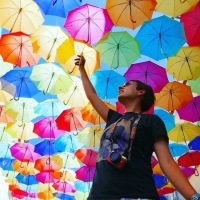Book - The Secret Holocaust Diaries
Tuesday, 10 January 2012 16:33 The Secret Holocaust Diaries - The Untold Story of Nonna Bannister
The Secret Holocaust Diaries - The Untold Story of Nonna BannisterNonna Bannister
Amazon Product Link
Editorial Reviews
From Publishers Weekly
Russian refugee Bannister (1927–2004) rarely spoke about her brutal experiences under the regimes of Stalin and Hitler, not even to the American she married after the war. In this memoir, she reveals how a privileged childhood in the 1920s and '30s gave way to horror and loss in the 1940s. Although the sound quality of this production is poor (lots of rustling papers), Rebecca Gallagher does reasonably well with the multiple languages and wisely avoids attempting to replicate European accents. What is irritating, however, is the constant interruption in the form of unnecessary editor's notes, which make the narrative choppy and disjointed. More helpful is the seventh disc, which contains an interview with Bannister's husband and son, a precious audio reminiscence from Nonna herself, recorded in 1993, and abundant PDF materials, including maps, photographs and genealogical data. A Tyndale hardcover. (June)
Copyright © Reed Business Information, a division of Reed Elsevier Inc. All rights reserved.
From Booklist
How this story came to be written is a big part of the drama. The only World War II survivor of her wealthy Russian, devout Christian family, Nonna Lisowskaya came to the U.S. in 1950, married Henry Bannister, and never spoke about her Holocaust experience––until a few years before her death in 2004, when she revealed her diaries, originally written in six languages on paper scraps that she had kept in a pillow strapped to her body throughout the war. Now those diaries, in her English translation, tell her story of fleeing Stalinist Russia, not knowing what was waiting in Hitler’s Germany, where she saw her mother murdered in the camps, escaped a massacre of Jews shot into a pit, was nursed by Catholic nuns, and much more. The editors’ commentary in different type constantly interrupts the memoir, but the notes are helpful in explaining history and context. The added-on heavy messages celebrating Nonna’s Christian forgiveness seem intrusive and unnecessary, no matter how heartfelt. --Hazel Rochman
= - = - = - = - = - = - = - = - = - = - = - = - = - = - = - = - = - = - = - = - = - = -
This was an Amazon free book that I got. At time of writing this review, the Kindle book was still at $0.00, so I do advice that you get a copy of this while still free.
This was a very chilling read. Not my first holocaust-related book, this book was more horrifying than the first one I read (A Child Al Confino) as, this really had the bone-chilling stuff inside!
Writing about what I felt in different parts of the book would only give the book away or spoil it for some, so I will keep this short.
This actually brought me back to my high school years when we were studying about the WWII. I remember the teacher telling us that "During such times, there is a story that one farmer shared exactly half of all he owned to some stranger that asked him for food." At that time, it striked me that "Wow, what a generous farmer!" Here in the book, it would seem that everyone during such times of need were generous people too, helping each other out.
Another point my teacher brought out at that time was "The Germans suffered when they were in Russia because of the cold," and just stopped at that. So at that time I thought "OK they suffered in Russia because of the cold." Now, some 10 years later, after having been to Harbin and experiencing such cold, and reading this book... it really puts things into perspective. (OK, so I admit, the Germans were brutal too, but hey, they were sent to Russia with the higher-ups not thinking about what they would suffer. So getting frost bitten, and then going into a house to warm up and actually have your ears and nose fall off... or taking off your frozen boots and having the skin and some flesh of your feet being torn off along with the boots... I'm sure it's not a nice feeling too)
Again, I am amazed (in a negative way) how cruel human beings can be. I can't help but wonder how her Grandmother is, if anyone has any news about that. How her brother ended up, and the like. And in the end - forgiveness for it all, but not forgetting. If you forget, then you have not learnt from the past, and history may repeat again; and thus, not to forget.
A very, very, very, touching book.
